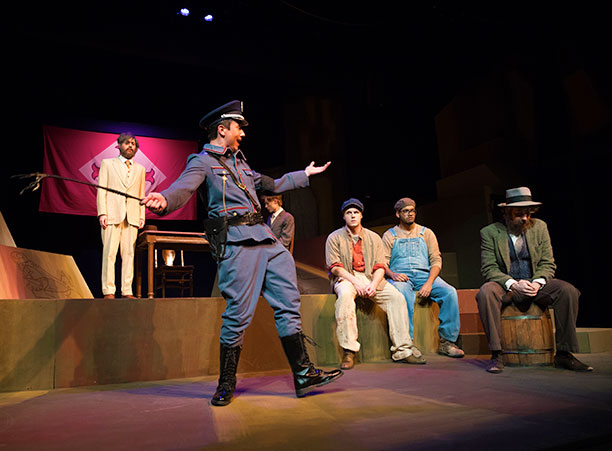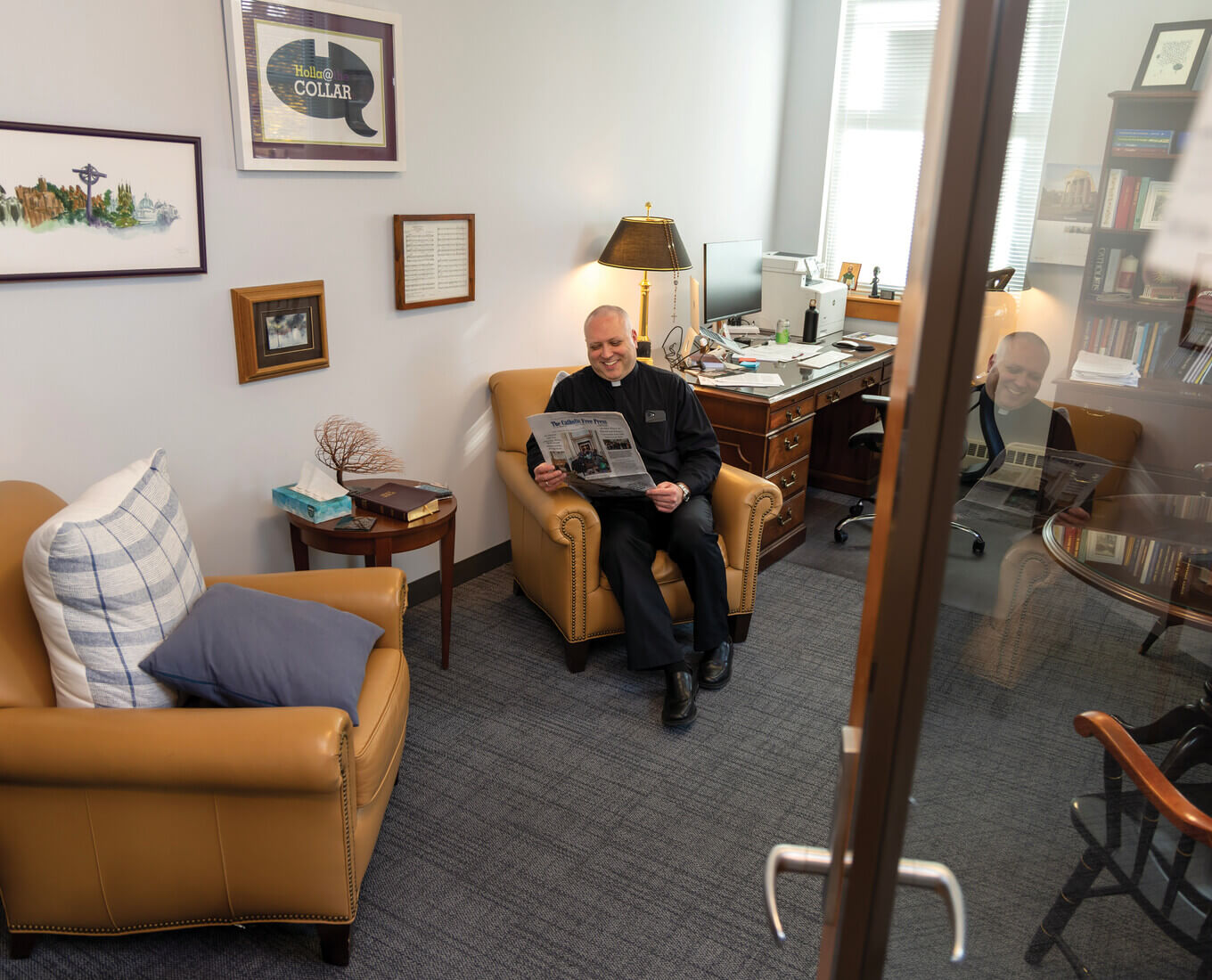theatre at the College of the Holy Cross, the choice of what show to produce this semester carried more weight than usual. On account of the current sociopolitical climate in the United States, Isser viewed the fall theatre production as a medium through which to engage the Holy Cross community in a national conversation.
“I felt (and continue to feel) that I have an obligation to respond to our contemporary situation as both a teacher and as an artist,” Isser shared. “I was blown away watching the women’s march on television and sat glued to the seat, thinking about my obligations and capacities (particularly as a man) to productively contribute to the movement.”
"Fuente Ovejuna," a classic work of the Spanish Golden Age dating back to 1614, aptly met his requirements. The play tells a tale of oppression, resistance, and retribution in a small Spanish village terrorized by a dictatorial oppressor.
“The core issues of 'Fuente Ovejuna' — the relationship between patriarchy, misogyny, and a totalitarian mindset — are recurring constants in Western culture,” Isser explained. Despite these connections, Isser was driven to utilize his artistic freedom to adjust the historical setting of the play, but intentionally chose to steer clear of a contemporary one.
“The contemporary situation in America is so raw and divisive that a contemporary setting would not provide the distance necessary for critical reflection,” said Isser, who decided instead to set the play in 1936 during the Spanish Civil War.
The play, above all, was meant to be provocative, to push boundaries, and to perhaps even disturb.
The audience experienced the palpable fear of the play’s women as the commander and his soldiers moved from verbally objectifying the women to exploiting their power to subjugate them.
“I’ll have you one way or the other. No point in resisting,” the commander (played Andrew Farina ‘18) says Laurencia, the play’s main character (played by Emily Arancio ’20).
Audiences were confronted to consider: What are our individual and collective responsibilities in the face of fascism? Do we respond with action or do we remain passive?
The impact of the play’s action was also largely due to decisions made surrounding language. Isser — who doesn’t speak any Spanish himself — was captivated by the intensity of the play’s original Spanish verses, describing them as “inherently passionate and dramatic,” “expressive, evocative, and emotional.” It became clear early on that much would be lost if the play was fully translated into English, so Isser turned to the Spanish department who collaborated with him to develop a bilingual script.
The decision was an experiment and a risk.
After Isser had translated the play into modern English prose, it was up to Daniel Frost, associate professor of Spanish, and Helen Freear-Papio, director of the Foreign Language Assistants Program and lecturer of Spanish, to reintegrate Lope de Vega’s poetic verses of the 1600s — akin in stature to those of Shakespeare.
“Had we just chosen to translate what Ed had written into modern Spanish, in many ways it would have been much easier, but the magic of the Spanish would be lost,” says Freear-Papio.
This posed a major challenge was for the actors who had to not only master a language they did not speak, but also perform it convincingly.
 The oppressive commander struts before the townspeople of Fuente Ovejuna, flaunting his bravado and power. Photo by Patrick O'Connor
The oppressive commander struts before the townspeople of Fuente Ovejuna, flaunting his bravado and power. Photo by Patrick O'ConnorFrost, Freear-Papio, and Helen Lokos, visiting associate professor of Spanish, worked with the actors individually, in groups, onstage and off over the six weeks of rehearsals.
“We focused on treating the words not as a poetic text to be recited, but rather as ideas and sentiments that the characters were conveying,” shared Frost, who explained that the vision was always to powerfully capture the challenges and humanity that is shared across time and languages.
In either language, the strength of the play’s women was undeniable. While the men of the town remained passive and immobile, the women rise up to take matters into their own hands: “Let us march in the name of justice! Why let the men hem and haw over strategy when we are the ones who suffered? Our vengeance will strike fear into the hearts of men everywhere!”
“I think ['Fuente Ovejuna'] is a good parable in that it explores the fact that these concepts and issues we’re dealing with aren’t new and the repercussions of that,” Nora Grimes ’19 was quoted saying in Worcester Magazine’s coverage of the production. “As a woman, I feel very empowered and I feel like I’m making a difference by doing this.”
“It gave me insight into the atrocities that were committed towards women for centuries because of the structure of society,” says Alif Kanji ’18, who saw the production. “The feminist undertones that emanated from the main character, Laurencia, showed the power women have when heard. It was encouraging that the school decided to put on this specific show in the midst of this political climate.”

